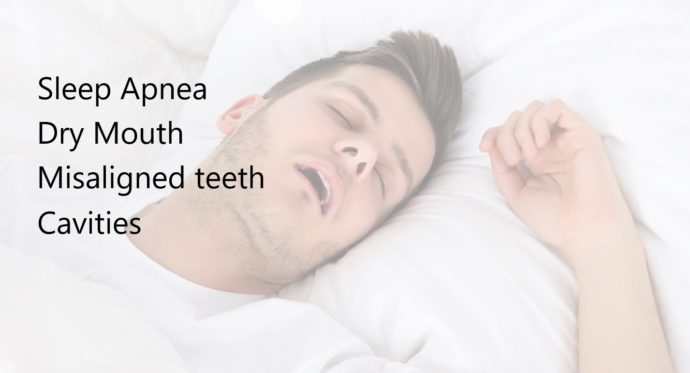The nose is designed primarily for breathing. Nasal breathing is better and healthier for both oral and general health. However, there are cases where nasal breathing becomes impossible or restricted.
In this case, the mouth becomes a recourse for breathing purposes. Since mouth breathing is not the ideal way of breathing, it may result in other complicated conditions if not treated immediately.
All medical content on this site, including this guide and other product reviews, is written by our team of experienced writers and researchers. All writers from The Toothbrush Expert are recommended and reviewed in the industry. You support us through our editorially chosen links, which earn us commission. Learn more
All of our picks have the American Dental Association (ADA) Seal of Acceptance.
Why is Nasal Breathing the Best Way of Breathing?
Nasal breathing helps to produce nitric acid, which is needed to make the lungs more receptive to oxygen. Also, nasal breathing helps to warm up the air that passes through the nasal cavities. It also moistens the nasal cavities in the process. Even the hairs in the nose aid in flittering dirt and dust, allowing only clean air to enter the lungs.
Mouth breathing, on the other hand, lacks all of these advantages. Instead, it dries out the mouth and makes it more susceptible to cavities and gum diseases. It doesn’t help produce nitric acid, which is rich in antiviral, antibacterial, and antifungal properties that the body needs to have a strong immune system.
While mouth breathing could be a result of bad sleeping posture and habits, it may also be a symptom of an underlying condition. Mouth breathing during sleep causes a disruptive sleep routine and general body fatigue. Therefore, your immune system becomes weak over time because you are not getting enough rest, and enough oxygen isn’t circulating through your body.
Causes of Mouth Breathing
Because the nasal passage is blocked and air cannot appear to reach the lungs through it, one can only breathe through the mouth. Nasal obstruction is the primary cause of mouth breathing, and it can be a result of other factors, which may include:
- Stuffy nose or nasal congestion
- Turbinate or adenoids
- The shape and size of the jaw and nose
- Tonsil enlargement
- Nasal polyps
- Deviated septum and nasal tumor
Either of these factors may lead to mouth breathing. Also, it is possible to experience partial mouth breathing where a patient experiences temporal nasal blockage. This means the body naturally switches between nasal and mouth breathing. However, mouth breathing brings with it certain symptoms that will reveal that immediate help is needed.
It is common to find redness or inflammation in the gum line. The mouth often becomes very dry, and there is a constant urge to drink water. Also, bad breath comes with a dry mouth, and a patient may find cracks in their lips. Chronic fatigue, poor sleep, and heavy snoring are also common symptoms of mouth breathing.
After a while, it is common for a patient to experience, cough, sore throat or to start experiencing pain in the teeth due to decay. Crooked and cracked teeth are also signs of mouth breathing. In some cases, patients may experience morning headaches and digestive issues. When you experience any or all of these symptoms, you need to seek professional help immediately.
Associated Conditions that May Cause Mouth Breathing
Mouth breathing is a common symptom for conditions such as seasonal allergies, asthma, chronic cold, nasal septum deviation, and many other conditions such as:
1 – Sleep Apnea
This refers to an anomaly in breathing while sleeping. The upper airway is obstructed, especially during sleep, making breathing difficult. The most common form of this condition is obstructive sleep apnea syndrome. This syndrome may completely block breathing while sleeping or make the breathing too shallow and almost forced.
The breathing stops and continues repeatedly. Such irregularity results in forceful mouth breathing, heavy snoring, and even bruxism. Breathing can be assisted using devices and therapy. In severe cases, a surgical procedure to correct the condition of a patient.
If the condition is weight-related, weight loss may be recommended, and nasal decongestion may also be explored. In addition, a dentist can only treat obstructive sleep apnea. With complex or more severe cases would have to consult a certified physician.
2 – Skeletal Deformities
Mouth breathing may result in skeletal deformities, especially in children. It may cause smaller jaw formation and can alter facial growth. Children who breathe through their mouth may have irregular chin and jaw construction. Orthodontic treatment, braces, and aligners may be required to have their skeletal frame adjusted.
3 – Gum Disease
Breathing through the mouth dries out the mouth, and the gum line may begin to suffer from bacterial infections such as gingivitis disease, which is a milder form of gum disease. A periodontal disease is a severe form of gum disease that may cause total tooth decay. Loss and bone damage
4 – Misaligned Teeth
Misaligned teeth in the lower jaw or upper jaw may cause a patient to develop mouth breathing. Tooth misalignment may cause deformed facial growth or altered jaw and chin framing, especially in children.
5 – Cavities and Dry Mouth
Saliva helps with the remineralization of the teeth and prevents the build-up of plaques and calculus. When a patient has a dry mouth, it means that the saliva glands are not producing enough saliva or that the saliva is drying up faster than it is being excreted. Dry mouth is a common symptom of mouth breathing. When this happens, it leads to tooth decay and cavity build-up in the dentition.
Make sure you use a good toothpaste
| Preview | Product | Rating | Price | |
|---|---|---|---|---|

|
Aquafresh Extreme Clean Whitening Action Fluoride Toothpaste for Cavity Protection, pack of 6 tubes... | $24.55 | Buy on Amazon | |

|
Colgate Cavity Protection Toothpaste with Fluoride, Great Regular Flavor, 6 Ounce (Pack of 6) |
$14.94
$11.82 |
Buy on Amazon | |

|
Crest Toothpaste Cavity Protection Regular (Pack of 3) | 3,558 Reviews | $15.99 $12.99 | Buy on Amazon |
Mouth breathing can also be caused by swallowing and speech difficulties. A patient who experiences a hard time swallowing or talking normally will often experience difficulty with nasal breathing. Also, enlarged tonsils or adenoids in children often result in a narrower airway, making nasal breathing difficult. In all of these cases, mouth breathing manifests as a symptom of these underlying conditions.
Available Treatment Options
Treatment that is available to patients experiencing mouth breathing will depend on the cause and the underlying conditions. Thus, for mouth breathing caused by sleep apnea, treatments like oral appliance therapy, jaw realignment appliances, invasive surgery, and nasal surgery are available treatments for the condition.
Also, for sleep apnea, CPAP devices, tooth alignment, and Uvulopalatopharyngoplasty are treatments that a dentist may recommend depending on the severity of the mouth breathing.
For asthma, chronic colds, or seasonal allergies, treatments like steroid inhalers, nasal decongestants, nasal spray, and antihistamines may be suggested by a dental professional.
Frequently Asked Questions
Mouth breathing could have every oral condition one may think of as side effects. Oral problems like dry mouth, dental erosion, tooth decay, gum diseases, bad breath, and cavities are all associated with mouth breathing. Skeletal deformation, like altered facial growth, misaligned jaws, and jaw pain, is all possible side effects of mouth breathing.
There is nothing in the mouth or throat that is designed by nature to filter the air that goes through the mouth. This may cause throat and vocal chord irritation. Therefore, a patient may expect incessant coughing if mouth breathing isn’t controlled.
In the same way that unfiltered air may irritate the throat since the mouth isn’t designed for taking in air for too long a time, mouth breathing may cause aerophagia. This is a digestive condition that is caused by the escape of air from the stomach into the small intestine, causing intestinal pain, bloating, and excessive belching.
Treatments like oral appliance therapy, jaw realignment appliances, invasive surgery, and nasal surgery are common fixers for mouth breathing. Also, CPAP devices, tooth alignment, and Uvulopalatopharyngoplasty are treatments that a dentist may recommend depending on the severity of the mouth breathing. Steroid inhalers, nasal decongestants, nasal spray, and antihistamines may also be suggested by a dental professional.
In Conclusion
Mouth breathing is rarely a life-threatening condition that will result in an emergency. However, it is important to consult your dentist or general physician as soon as you notice common symptoms such as dry mouth, lingering bad breath, or if you experience obstructive breathing while sleeping.
While most of the side effects can be restored and treated, parents have to take note of early symptoms such as heavy snoring, teeth misalignment, and obstructive breathing in kids to prevent skeletal deformities.

Dr Michael Jones is the proud founder of The Toothbrush Expert. He has been working as a dentist for 21 years now. Besides his work as a dentist, Michael wants to help people to find the right dental products. His goal is to provide everyone with honest expert reviews on all kinds of dental care products.

